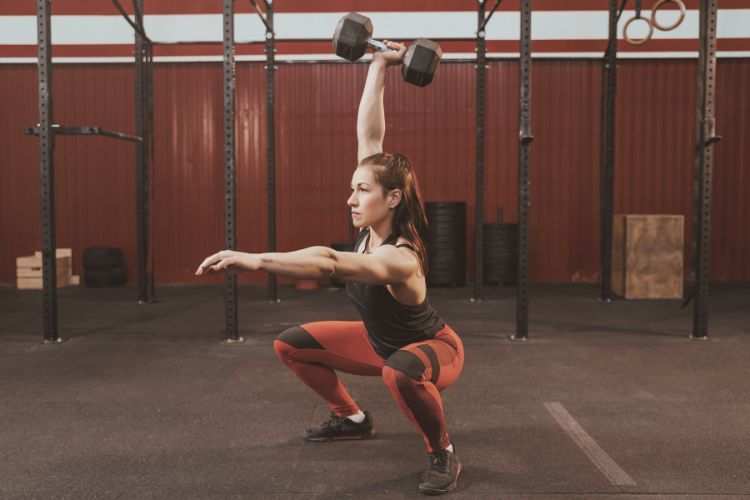Sign up for workout ideas, training advice, reviews of the latest gear and more.






In the fast-paced world of today, staying fit and healthy is more crucial than ever, especially for women who juggle various roles daily. A fitness training program is not just about losing weight; it is about building strength, enhancing endurance, and boosting overall well-being. This article aims to guide women through different aspects of fitness training programs, helping them make informed decisions to achieve their health and fitness goals.
Before jumping into any fitness training program, it is vital to understand your body and set realistic goals. Women’s bodies are different, and factors such as age, genetics, and current fitness level play a significant role in how quickly and effectively you can achieve your goals. Setting SMART (Specific, Measurable, Achievable, Relevant, and Time-bound) goals will help keep you motivated and on track.
Strength training is a crucial component of any fitness program. For women, incorporating strength training can help build lean muscle mass, boost metabolism, and reduce the risk of osteoporosis. Focus on compound exercises like squats, deadlifts, and bench presses, as they work multiple muscle groups at once, providing more bang for your buck.
Cardiovascular exercises are essential for heart health and endurance. Activities like running, swimming, and cycling can help burn calories, improve lung capacity, and enhance cardiovascular health. Aim for at least 150 minutes of moderate-intensity or 75 minutes of high-intensity cardio per week, as recommended by health experts.
Flexibility and mobility work are often overlooked but are crucial for preventing injuries and improving overall performance. Incorporate stretching routines and mobility exercises into your fitness program to enhance your range of motion, reduce muscle tension, and promote recovery.
A balanced diet is integral to any fitness program. Focus on consuming a variety of nutrient-dense foods, including fruits, vegetables, whole grains, and lean proteins. Stay hydrated and pay attention to portion sizes to fuel your body effectively for workouts and recovery.
Rest and recovery are as important as the workouts themselves. Ensure you are getting enough sleep, practicing stress-reducing techniques, and giving your body time to recover between workouts. This will help prevent burnout, reduce the risk of injury, and improve overall performance.
Consistency is key when it comes to fitness training. Create a routine that fits into your lifestyle, and stick to it. Whether you prefer working out in the morning, during lunch breaks, or in the evening, find a time that works for you and make it a non-negotiable part of your day.
Finding Support and Accountability:
Having a support system can make a world of difference in staying motivated and accountable. Join a fitness community, find a workout buddy, or hire a personal trainer to provide guidance, support, and accountability.
It’s normal to face challenges and setbacks in your fitness journey. What matters is how you overcome them. Stay focused on your goals, celebrate your achievements, and remember why you started in the first place. Finding new and enjoyable ways to stay active, setting new goals, and rewarding yourself for reaching milestones can help keep motivation high.
Embracing the Journey:
Fitness is a lifelong journey, not a destination. Embrace the process, enjoy the journey, and remember that every step forward is a step toward better health and well-being. Celebrate your progress, learn from setbacks, and keep pushing forward.
Creating a balanced and effective workout plan is paramount in achieving your fitness goals. Start by determining how many days a week you can realistically commit to working out, and then break down your routine by focusing on different muscle groups or types of exercise each day. For instance, you might dedicate one day to lower body strength training, another to upper body work, and a third to cardiovascular exercise. Don’t forget to incorporate flexibility exercises and rest days to allow your body to recover and prevent injury.
When embarking on a fitness journey, it’s crucial to separate fact from fiction. One common myth is that lifting weights will make women look “bulky.” In reality, strength training helps to tone the body and burn fat, creating a leaner physique. Another misconception is that cardio is the most effective way to lose weight. While cardiovascular exercise is essential for heart health and burning calories, a combination of strength, flexibility, and cardio training yields the best results for overall fitness.
Fitness is just one component of a healthy lifestyle. Pay attention to other aspects of wellness, such as getting enough sleep, managing stress, and fostering positive relationships. Practices like meditation, yoga, and spending time in nature can enhance mental well-being and complement your physical fitness routine.
Women’s bodies go through various hormonal changes throughout their lives, from menstruation to pregnancy and menopause. These changes can affect energy levels, mood, and physical performance. Being aware of your body’s rhythms and adjusting your workout routine accordingly can help optimize your training and make you feel your best.
Functional training focuses on exercises that mimic everyday movements, enhancing strength, balance, and mobility for real-life activities. Incorporating functional exercises like lunges, squats, and planks can help improve your quality of life and reduce the risk of injury in daily tasks.
Don’t be afraid to try different types of exercise to keep things interesting and find what you enjoy the most. From dance classes and hiking to weightlifting and pilates, varying your workout routine can keep you engaged and help work different muscle groups.
As you progress in your fitness journey, take time to reassess and adjust your goals as needed. Celebrate your successes, learn from any setbacks, and set new, challenging goals to keep yourself motivated and moving forward.
Your fitness journey should be about feeling good and improving your health, not just about how you look. Focus on setting performance-based goals and celebrating what your body can do, rather than fixating on the scale. Building a positive body image takes time, but focusing on your strengths and embracing your body at every stage of your fitness journey can help.
The world of fitness is always evolving, with new research and trends emerging regularly. Stay informed by reading reputable sources, attending workshops, and considering professional advice to ensure your workout routine is safe and effective.
Achieving your fitness goals won’t happen overnight, and that’s perfectly okay. Fitness training program is a lifelong journey, and persistence and patience are key. Stay committed, be patient with yourself, and remember that every workout brings you one step closer to your goals. By embracing the holistic aspects of wellness, experimenting with different types of exercise, and building a positive body image, you can create a balanced and fulfilling fitness routine that serves you in the long run.
Stay up to date on the latest women’s health, fitness and lifestyle trends and tips.